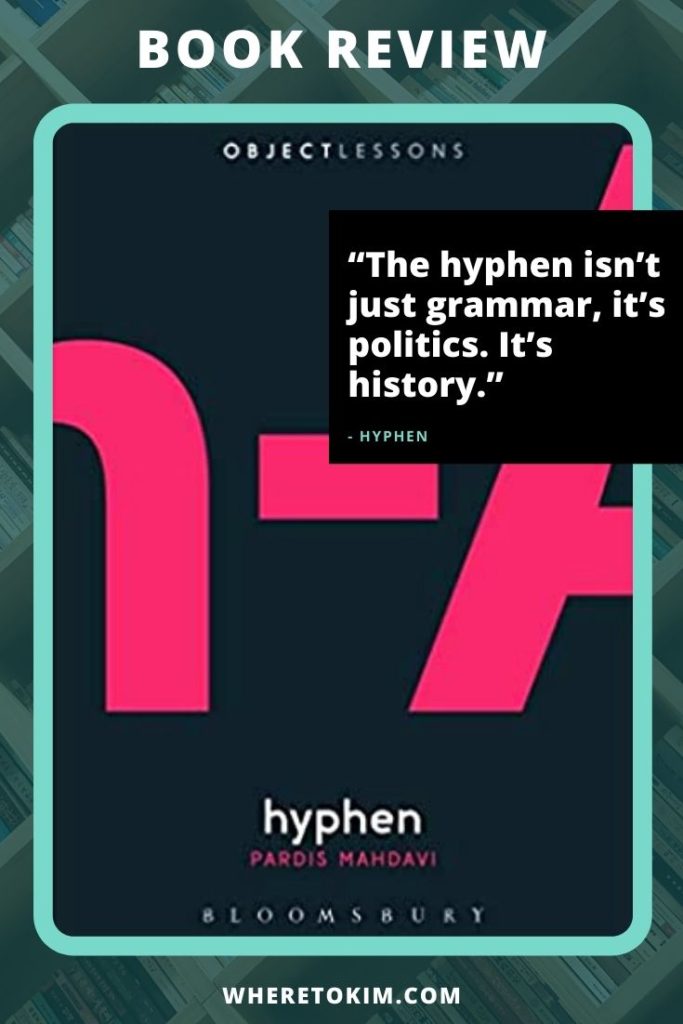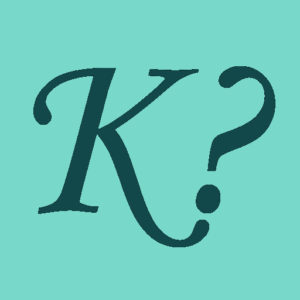Hyphen by Pardis Mahdavi will make you more aware of the power of the hyphen; a powerful divider and connector for identity and beliefs.
Location: mainly USA
Hyphen synopsis
Object Lessons is a series of short, beautifully designed books about the hidden lives of ordinary things.
To hyphenate or not to hyphenate has been a central point of controversy since before the imprinting of the first Gutenberg Bible. And yet, the hyphen has persisted, bringing and bridging new words and concepts.
Hyphen follows the story of the hyphen from antiquity – “Hyphen” is derived from an ancient Greek word meaning “to tie together” – to the present, but also uncovers the politics of the hyphen and the role it plays in creating identities. The journey of this humble piece of connective punctuation reveals the quiet power of an orthographic concept to speak to the travails of hyphenated individuals all over the world. Hyphen is ultimately a compelling story about the powerful ways that language and identity intertwine.
Mahdavi – herself a hyphenated Iranian-American – weaves in her own experiences struggling to find her own sense of self amidst feelings of betwixt and between. We meet three other individuals who are each on a similar journey and watch as they find a way to embrace the space of the hyphen – rejecting the false choice of trying to fit into previously prescribed identities. Through their stories, we collectively consider how belonging only serves to fulfill the failures of troubled states, regimes, or institutions and offer possibilities to navigate, articulate, and empower new identities.
Book review
Now that the whole world is connected, both online and offline, new questions arise. One of these questions is whether a hyphen connects or divides. Does it give you a positive or a negative feeling when your identity is described by a compound word with a hyphen?
Hyphen is a short and light read that reveals the richness and power of this single object. Beginning with the original use of this orthographic marker – following the Greeks, Romans, Celtic monks and Gutenberg – to the hot topic it became in the identity politics of the United States. From the point of view of four hyphenated Americans (e.g., Chinese-American), Pardis Mahdavi shares stories of belonging. What does it mean to belong to more than one country, race, gender, or religion? Is the hyphen used to include or exclude? Does it separate people and identities or bring them together?
Eye-opener
I liked how this book made me look beyond the use of the hyphen as an orthographic marker. It shows how such a seemingly small thing can have a big impact on people’s feelings. I have never been so aware of the use of hyphens while reading a text and I will never look at hyphens the same way again.
Divided audience
What I didn’t like about Hyphen is that the story is not balanced. It concentrates on one side of the story and presents it as correct. Yet there are more uses of the hyphen than to hyphenate people. At times, the hyphen seems like an afterthought rather than the subject of the book. The author focuses on the political and social power of the hyphen, with some side-steps into grammar and coding. The focus is on usage in the English-speaking world and politics in the United States. If I had to rewrite this book from the perspective of my language and country – or any other country – it would be completely different.
This makes me wonder what the intended audience of this book is; I am pretty sure I am not. I would have liked to read a more objective and balanced discussion. The emphasis is on how a hyphen divides and, in my opinion, the author fails to show the many great things it does when it connects. Where is the thoughtful discussion of other interpretations of the hyphen?
Hyphen-lover or -hater?
I am inclined to believe that a “hyphenated individual” who is unaware of the political discussions about the hyphen does not experience it as something bad. Hyphenated words often make me feel good because they suggest that the two elements are connected and work very well together. I guess I am a so-called hyphen-lover as I strongly believe in the connecting power of the hyphen: without the hyphen, words would represent only one part of a person, but with the hyphen, that person does not have to hide any part of him, her, or themselves.
Interested?
Book details
Title: Hyphen
Author: Pardis Mahdavi
Publisher: Bloomsbury Academic
Pages: 176
ISBN (13): 9781501373909
Publication date: 3 June 2021
About the author
Pardis Mahdavi is Dean of Social Sciences in The College of Liberal Arts and Sciences and a Professor in the School of Social Transformation at Arizona State University, USA. She is a non-fiction writer with 20 years of experience as an anthropologist, public health researcher, and expert in sexual politics across the globe.
Many thanks to Bloomsbury Academic and NetGalley for a digital ARC of this novel in exchange for an honest review.







